
I saw that the lanternist indulges in transformations, in magical transformations and I saw him transforming himself …. the transforming showman. (A Conversation with Bill Douglas, Bridport Film Society, 1987).
The research I am working on with The Bill Douglas Museum concerns Bill Douglas’ film Comrades, representing the story of the Tolpuddle Martys, with a magic lanternist character telling the story. My academic ‘angle’ is to trace ‘third spaces’ in and around Comrades, an idea so far not presented, to my knowledge, by either the director, film commentators, or academics.
The place of the Tolpuldde story in British social history has a particular resonance with me, for personal and political reasons. I spend a lot of time in the Dorset region and attend the Tolpuddle Festival every year, which homours the martyrs as the beginnings of the trade union movement in Britain. In my youth I spent time on Miners’ picket lines. I’m now a media adademic. So the film brings together my personal, political and professional ‘selves’ and the role of the lanternist in the narrative adds another layer to this.
When I saw the research stipend advertised, I wondered if my interest in Bill Douglas’ film, Comrades, would be a little peripheral to the museum’s research focus. Whilst the film features a magic lanternist and was directed by the museum’s benefactor, I assumed that researchers specializing in all of his work (and particularly his better known ‘My Childhood’ trilogy) or in the pre-cinema artefacts housed in the Exeter museum, would be more central to the work of the museum and the University. Fortunately the museum is keen to explore all aspects of Bill’s work as well as his copllection and has a full productrion archive on Comrades, which they see as key to his career. So I was thrilled to receive the stipend and, whilst I am still no specialist in optics, spending time with the collection is adding a new dimension to my research, as so often happens.

This third space idea comes from several theorists, including Bhabha (1994) and I’ve recently published a book (with John Potter) on digital third spaces in education. It’s quite a simple idea, really – it’s a space in between other spaces. It can be a real place or a way of thinking, but the important thing is that it’s transformative – it sets up new ideas. For this research, I’m combining physical locations (museums) and ways of seeing and thinking about history and politics, through and with film.
So, with this as my theoretical approach, I’m exploring the ‘in between’ relationship between four things (although it’s increasing as I visit the collection and carry out interviews, so it could be more). First, Comrades as a film. Second, the curation of the director’s collection of magic lanterns and other optical artefacts at the museum in Exeter. Third, the role of the magic lanternist character in Comrades as pivotal to the representation of social history in the film. And fourth, the curation of this social history in other museums in Tolpuddle (the Martyrs’ Museum itself) and Dorchester (the Shire Hall living history project).
So my thinking about Comrades in the context of the Bill Douglas collection, the curational narrative of the Tolpuddle Martyr’s Museum (and its annual TUC festival) and the social history project housed in Shire Hall, Dorchester set ups another third space, between politics, film, art and physical objects. When I visit the museum (twice so far), I spend time mainly with the objects and Peter Jewell’s research notes. I’m interested in the contextual archives – press cuttings, shooting scripts, financial records, but for the research itself it’s the interplay of thinking about history – of cinema and of people (in Unions) that I’m immersed in. But the physical objects are also texts, so I see a magic lantern donated by Bill and a pamphlet about the Martyrs that Peter acquired in a shop in London in the same way.

The Lapierre magic lemtern belonging to Bill and Peter’s collection, which was used in Comrades.
Perhaps not being a pre-cinema scholar nor a historian gives me a different way of looking at these things. My project is a media audience study, building on mixed methods approaches I’ve used on work with The Wire and Benefits Street. But my own thinking, as I visit the museum and read the materials in the collection, is progressing from thinking about the lanternist as a narrative device (nothing new there) to understanding the hope (probably unrealized) for cinema to democratize representation ‘for the people’ and the advent of trade unions as being impossible to re-create / curate neutrally. In other words, could these stories be told without politics?
So far I have made two visits to the museum. The first trip was devoted to exploring the collection and being with the artefacts. The second included interviewing Phil Wickham and Peter Jewell about historical and political narratives in both Comrades and Phil’s curation. Following these visits, I interviewed Tom de Wit, curator of the Tolpuddle Martyrs Museum and I ran a workshop at the Tolpuddle Festival with the Radical Film Network, during which participants drew ‘maps’ of each others’ engagements with films, history and politics in the same way as I’m doing with Comrades. Getting people to draw maps, or other visual representations of the connections they make, helps us understand how our interpretations of films can bring to life history, politics and our own personal life stories.


Workshop at the Tolpuddle Festival
For me, Comrades sits in a space between my own political views and trade unionism, some deeply personal things to do with my late father, my working life and then the connection between all of those in my current geographical location when I’m at work. When I ask people to choose a film with political and historical meaning for them and then think about similar connections, usually they come up with rich, deep and personal stories. I use some ‘distancing’ techniques, putting people together in pairs and then groups, so that by the time they share their stories, they are combined into themes arising from several people. Then, with people’s consent, I photograph the ‘maps’ and use them as data for the research.
Next, I’ll be visiting the Shire Hall in Dorchester and finally bringing the curators from the three museums together for a discussion and another ‘mapping’ exercise back at the Bill Douglas Museum. Following that, I’ll be presenting the findings at conferences and writing up for a journal – whether my findings will be something I can generalize about – ie whether I find something out about films, history, politics and people more broadly, or whether what I discover is more specific to Comrades is, is at moment in time a ‘known unknown’.
 Do you know or work with a promising early career scientist? If so, why not nominate them for an Award Lecture at the British Science Festival 2018!
Do you know or work with a promising early career scientist? If so, why not nominate them for an Award Lecture at the British Science Festival 2018! Every BU academic has a
Every BU academic has a  By clicking on this box, on the left of the Research Blog home page just under the text ‘Funding Opportunities‘, you access a
By clicking on this box, on the left of the Research Blog home page just under the text ‘Funding Opportunities‘, you access a  In the past few days of November, the Women’s Academic Network (WAN) has hosted an interactive, feminist art exhibition by the Red Luna Artists’ Collective entitled ‘Project Vagina’. The exhibition, held in the Atrium Art Gallery in Poole House, has been open to staff, students and the general public, with an invitation also issued to our creative neighbours next door at AUB.
In the past few days of November, the Women’s Academic Network (WAN) has hosted an interactive, feminist art exhibition by the Red Luna Artists’ Collective entitled ‘Project Vagina’. The exhibition, held in the Atrium Art Gallery in Poole House, has been open to staff, students and the general public, with an invitation also issued to our creative neighbours next door at AUB.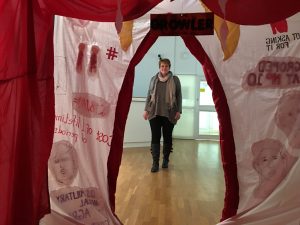

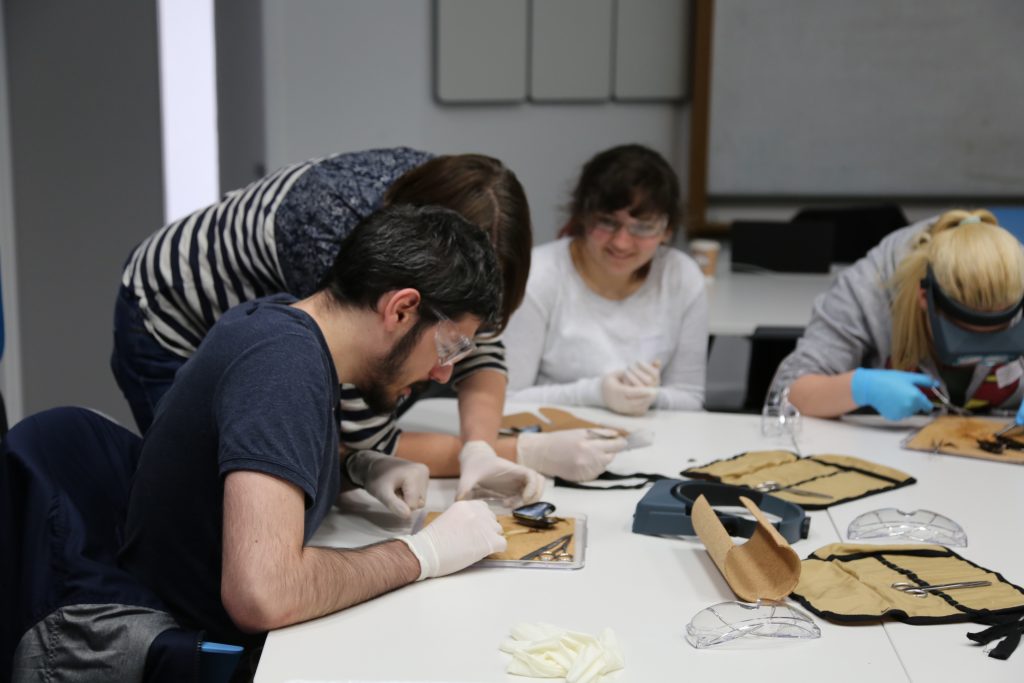
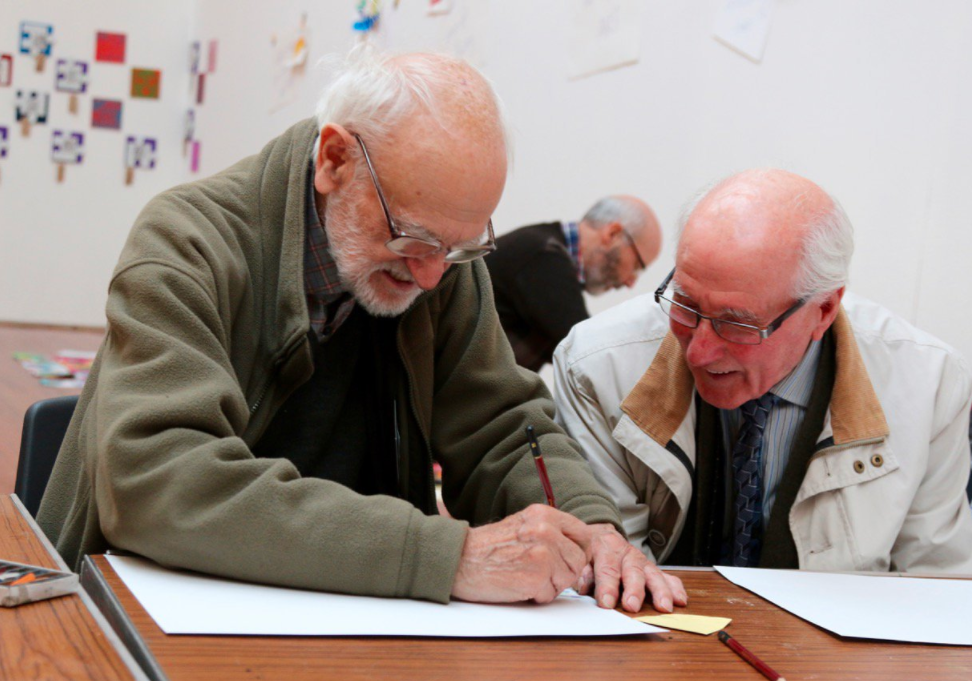
 Karen was delighted to receive the Herbert Walton Award for her research. This award, “awarded at the discretion of the judges, recognises an excellent PhD dissertation submitted during the year at Doctorate level”, and the criteria reflect relevance to the practice of the profession.
Karen was delighted to receive the Herbert Walton Award for her research. This award, “awarded at the discretion of the judges, recognises an excellent PhD dissertation submitted during the year at Doctorate level”, and the criteria reflect relevance to the practice of the profession.

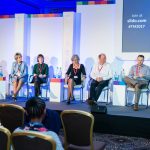





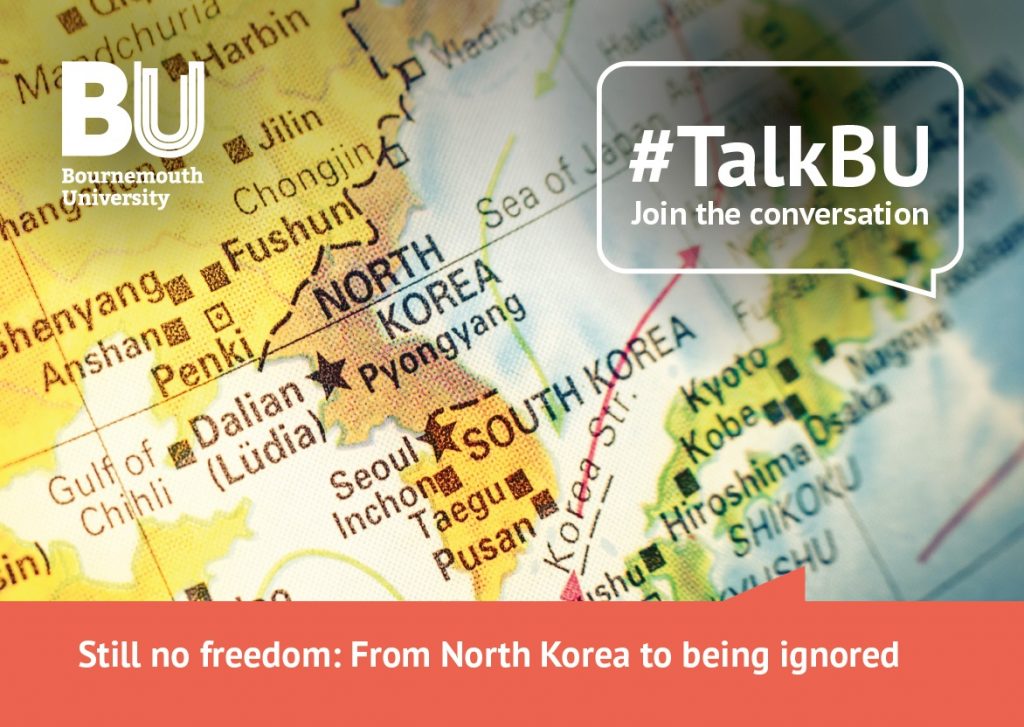
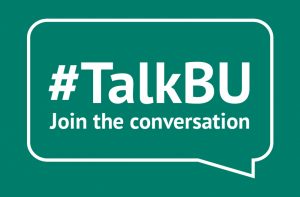 #TalkBU is a monthly lunchtime seminar on Talbot Campus, open to all students and staff at Bournemouth University and free to attend. Come along to learn, discuss and engage in a 20-30 minute presentation by an academic or guest speaker talking about their research and findings, with a Q&A to finish.
#TalkBU is a monthly lunchtime seminar on Talbot Campus, open to all students and staff at Bournemouth University and free to attend. Come along to learn, discuss and engage in a 20-30 minute presentation by an academic or guest speaker talking about their research and findings, with a Q&A to finish. 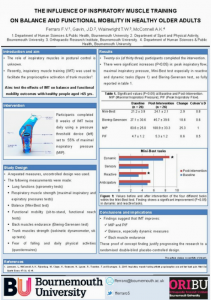
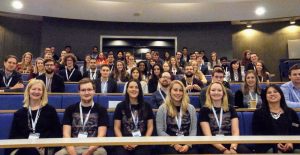











 New Nepal scoping review on maternal & neonatal health
New Nepal scoping review on maternal & neonatal health Fourth INRC Symposium: From Clinical Applications to Neuro-Inspired Computation
Fourth INRC Symposium: From Clinical Applications to Neuro-Inspired Computation Writing policy briefs
Writing policy briefs Upholding Excellence: The Concordat to Support Research Integrity
Upholding Excellence: The Concordat to Support Research Integrity ECR Funding Open Call: Research Culture & Community Grant – Application Deadline Friday 12 December
ECR Funding Open Call: Research Culture & Community Grant – Application Deadline Friday 12 December MSCA Postdoctoral Fellowships 2025 Call
MSCA Postdoctoral Fellowships 2025 Call ERC Advanced Grant 2025 Webinar
ERC Advanced Grant 2025 Webinar Horizon Europe Work Programme 2025 Published
Horizon Europe Work Programme 2025 Published Horizon Europe 2025 Work Programme pre-Published
Horizon Europe 2025 Work Programme pre-Published Update on UKRO services
Update on UKRO services European research project exploring use of ‘virtual twins’ to better manage metabolic associated fatty liver disease
European research project exploring use of ‘virtual twins’ to better manage metabolic associated fatty liver disease